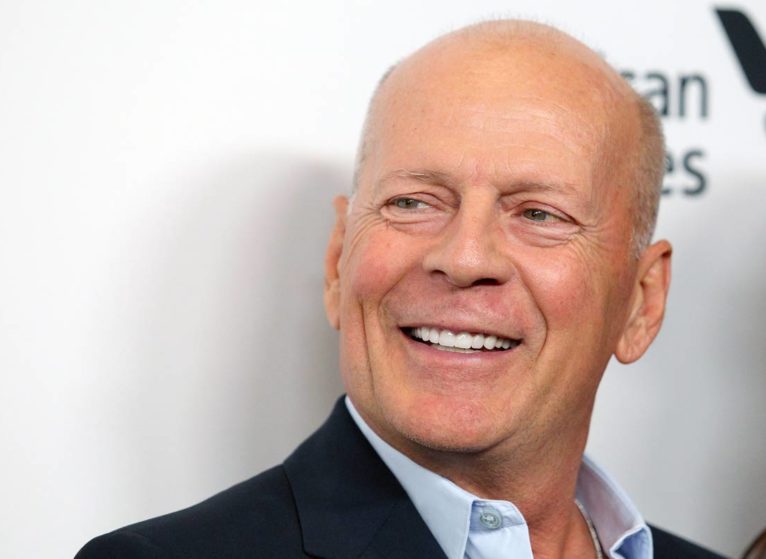We’ve all experienced this frustration: A word is right on the tip of your tongue. But you can’t think of it. With aphasia, this annoyance can slowly rob someone’s ability to communicate. You likely recently heard about this condition: The family of celebrity Bruce Willis announced he’s stepping away from acting because of aphasia. He’s having trouble getting words out.
So what is aphasia? Are there treatments? How can you help a loved one with aphasia? A UVA Health neurologist and a UVA Health speech-language pathologist took time to answer our questions.
What Is Aphasia?
People with aphasia have difficulty expressing themselves or understanding language. Aphasia can affect a person’s ability to:
- Speak
- Understand
- Read
- Write
“Aphasia is usually a symptom, rather than a disease. Different processes and diseases — such as brain injury, stroke, brain tumors, and neurodegenerative disorders — may lead to aphasia. Aphasia may be an isolated symptom. But most often it occurs along with other symptoms,” says Anelyssa D'Abreu, MD, a neurologist who specializes in neurodegenerative diseases like dementia.
Dementia Doesn’t Just Make You Lose Memories
Most people think of dementia as a memory problem. But it can start out impacting language and make it harder to get the right words out, either in writing or speaking.
“In the beginning stage of some types of dementia, a person may remember everything, but not be able to express themselves well,” says Mark Evans, a speech-language pathologist.
Part of the UVA Alzheimer’s and memory disorders care team, Evans works with patients who have primary progressive aphasia. Most are in their 60s or 70s, but some are in their 50s. This less common type of aphasia gets worse over time. Dementia is the underlying cause — most often frontotemporal dementia. But this type of aphasia can also be caused by Alzheimer’s disease.
“With primary progressive aphasia, over time they slowly lose their ability to speak, write, and understand,” Evans says.
Having conversations with people is like going to the gym for your brain. It can help you hold on to what you have and slow progression of aphasia.
Mark Evans, UVA speech-language pathologist
What Treatments Can Help?
Someone can recover from aphasia if it’s caused by a stroke or brain injury and the brain has time to heal. If someone develops aphasia because of Alzheimer’s, a drug to treat Alzheimer’s can help improve their communication skills.
Speech therapy can be the biggest help: “Speech-language pathologists are fundamental to treatment, for both the patient and their family,” Dr. D'Abreu says. She adds, “Speech pathologists educate the family about the problem. And they provide tips on how to communicate with the patient. By understanding the condition, families can better cope with their own frustrations as well.”
Through speech therapy, Evans helps patients compensate for the communication skills they’ve lost. He also tries to restore some of their ability to get the words out. “The big concern is that aphasia can become isolating," he says. "I help people figure out ways to be more engaged with people they talk to regularly and to expand their social interactions.”
Stay Social: Exercises Your Brain’s Language Center
Knowing you have aphasia can bring a sense of relief. Evans notes, you can explain to others why they need to have patience. You can once again enjoy interacting with others — and not worry when you can’t find the right word.
This is so important, Evans says, because “having conversations with people is like going to the gym for your brain. It can help you hold on to what you have and slow progression to some degree,” Evans says.
Socialization helps us keep our language skills, research shows. So make an extra effort to spend more time with friends and family and reach out to those you’ve lost touch with. Reminisce about a first job or best vacation. Pull out your family photos and share stories. Make new friends and participate in groups.
Can’t Think of a Word or Express Your Idea?
Evans recommends these strategies if you’re having trouble with aphasia or getting words out:
Remain calm & be patient.
Let your brain work without putting pressure on it. Sometimes the harder you try to think of a word, the more it escapes you.
Trouble Getting Words Out?
If trouble expressing yourself is disrupting your life,
Picture the person, place, or thing in your mind.
The image doesn’t bring up the word? Describe what it’s used for. Where would you find it? What does it look like? If you move like you’re sweeping the floor, the word ‘broom’ might pop into your head.
Have a Loved One With Aphasia? How You Can Help
You slow down your pace when walking with someone who has trouble moving. Do the same with your speech. Also ask your loved one with aphasia how much help they do, or don’t, want when they have trouble getting the words out.
When talking with someone who has aphasia, Evans recommends more tips from the National Aphasia Association:
- Use shorter and less complex sentences. Repeat and rephrase what you said.
- Give someone extra time to respond.
- Don’t make frequent corrections or insist each word be pronounced perfectly.
- Encourage as much independence as possible.
- Continue normal activities (dinner with family, having company over, or going out), if possible.
- Keep someone with aphasia informed. But don’t overburden them with unnecessary details.


This article is very helpful and timely. I plan to share it with my siblings as we care for our elderly mother who is experiencing signs of aphasia.
Thank you!
So glad you found it helpful. We appreciate you letting us know.